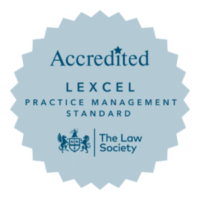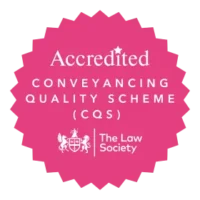Wills + Probate: Probate Glossary – Decoding Probate Terminology
26th Jun 2025
Whether a loved one passes away with or without a Will, navigating the estate process can feel overwhelming. Our experienced team is here to guide you through each step with an empathetic and personal approach during this challenging time.
In the legal world, everyday words and phrases often take on specific meanings, which differ from their common usage – giving rise to the term “legal jargon.”
We have put together a Probate Glossary featuring commonly used legal terms in relation to the estate administration process. The Glossary provides an everyday explanation to help understand their meanings from a legal perspective.
- Administrator/s: The person/s appointed to manage the estate of an individual who has died without a Will (typically a family member). Also, in situations where the named Executor/s of a Will are unable to act.
- Assets: Items owned by the deceased e.g. cash, investments, personal effects (see Chattels), land and property, etc.
- Beneficiary: A person or entity (e.g. charity, church) inheriting from the deceased’s estate.
- Codicil: A legal document that amends or adds to the individual’s existing Will.
- Chattel: A legal term to describe tangible/moveable property (e.g. personal effects) such as jewellery, furniture, vehicles. Not including property used solely or mainly for business purposes or held as an investment.
- Executor/s: The person/s named in the Will who has the legal authority to administer the deceased’s estate.
- Estate: All assets owned by the deceased, including property, investments, and personal items.
- Guardian – a person/s appointed under a Will who will have parental responsibility for the deceased’s children under the age of 18.
- Grant of Letters of Administration: Legal document issued by Probate Registry which authorises someone (see Administrator) to administer the estate where there is no Will.
- Grant of Probate: The legal document issued by the Probate Registry which confirms the validity of the Will and names the acting Executors.
- Grant of Representation: this is the generic term used to cover both a Grant of Letters of Administration or Grant of Probate.
- Inheritance Tax (IHT): Tax due on the deceased’s estate which is not otherwise exempt (eg gifts to charity) or above the applicable IHT thresholds.
- Intestacy: When someone dies without leaving a valid Will. A partial intestacy can arise if there is a Will but for some reason, the Will does not deal with the full disposal of an estate.
- Legacy: A gift of personal property, chattel, or money to a beneficiary (legatee).
- Probate: This is a generic term often used with reference to the legal process of validating a Will/intestacy and administering the estate.
- Probate Registry: Part of HM Courts and Tribunals and the legal body in England and Wales responsible for confirming the validity of the deceased’s Will and issuing of a Grant of Representation.
- Residuary Estate: Balance of the deceased’s estate after the payment of all liability funeral expenses, legacies , administration expenses and tax and due to the “residuary” beneficiaries.
- Testator/Testatrix: The legal term used to describe the person who has made the Will.
- Trust/Trustee: In England and Wales a Trust is a legal arrangement where one party (the “settlor/s”) “transfers” assets to named individuals/entities (the “trustee”) to manage for the benefit of a third party (the “beneficiary”). A Trust is most commonly used to protect and control assets.
- Will: A legal document which confirms a person’s wishes and instructions as to how their assets should be managed and distributed after their death. A Will can also contain funeral wishes and guidance as to guardian arrangements for any dependent children.
Friendly advice with respect and sensitivity when you need it most.
If you have lost a loved one and are wondering where to turn to for help with probate and estates, then speak to one of our experienced and friendly team.
For further information or to arrange an appointment please contact our Probate team by calling on 01761 414 646 or emailing us on enquiries@th-law.co.uk or contacting us through our website.
Related news
Articles you may find useful
Like this article? Sign up for our regular newsletters






